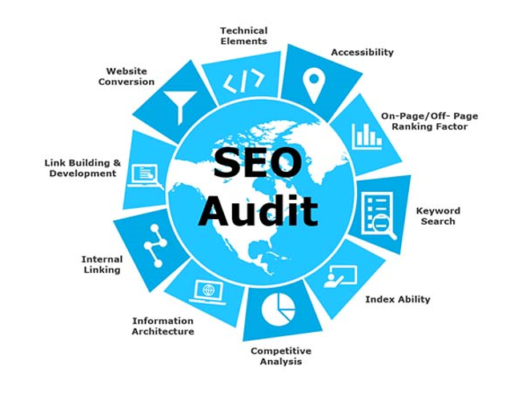In the dynamic world of digital marketing, On-Page SEO Optimization stands as a cornerstone for achieving higher search engine rankings and improving the overall performance of your website. This guide will delve into the importance of on-page optimization, best practices, content optimization strategies, the significance of meta tags, and how to seamlessly integrate keywords into various on-page elements.
Importance of On-Page Optimization
On-page optimization is the process of fine-tuning individual web pages to maximize their visibility on search engine results. It plays a pivotal role in enhancing user experience, increasing organic traffic, and ultimately, achieving higher search engine rankings. The following are key reasons why on-page SEO is indispensable:
- User Experience Improvement: On-page optimization ensures that your website is user-friendly, with easy navigation, fast loading times, and relevant content.
- Relevance to Search Queries: Optimizing on-page elements helps search engines understand the context and relevance of your content to user search queries.
- Enhanced Crawlability: Well-optimized pages are more easily crawled and indexed by search engine bots, ensuring that your content is included in search results.
- Competitive Edge: Websites with strong on-page SEO are more likely to rank higher than competitors who neglect this crucial aspect of optimization.
Best Practices for On-Page Optimization
To unlock the full potential of on-page SEO, consider implementing the following best practices:
- Keyword Research and Targeting: Conduct thorough keyword research to identify relevant terms and phrases. Integrate these strategically into your content, headings, and meta tags.
- Optimized Titles and Headings: Craft compelling and keyword-rich titles for each page, and use clear headings to organize content and improve readability.
- User-Friendly URLs: Create clean and descriptive URLs that convey the content of the page. Avoid generic or confusing URL structures.
- Quality Content Creation: Develop high-quality, valuable, and unique content that caters to the needs and interests of your target audience.
- Mobile Optimization: Ensure your website is mobile-friendly, as search engines prioritize mobile-friendly websites in their rankings.
How to Optimize Website Content for SEO
Optimizing website content is a core aspect of on-page SEO. Here are key strategies to enhance your content for search engines:
- Keyword Placement: Strategically place keywords in the title, headings, and throughout the content, ensuring a natural and readable flow.
- Content-Length and Depth: Aim for comprehensive, in-depth content that thoroughly covers the topic. However, prioritize quality over quantity.
- Multimedia Integration: Enhance your content with images, videos, and infographics to engage users and reduce bounce rates.
- Internal and External Linking: Include relevant internal links to other pages on your website and external links to authoritative sources.
- Understanding Meta Tags and Their Impact on SEO
Meta tags provide crucial information to search engines and users. The two most important meta tags for SEO are:
- Title Tag: The title tag appears as the clickable headline on search engine results. Craft compelling titles with targeted keywords to improve click-through rates.
- Meta Description: The meta description is a brief summary of the page’s content. Write concise, persuasive descriptions that encourage users to click on your link.
Integrating Keywords into On-Page Elements
Efficiently incorporating keywords into various on-page elements is key to a successful SEO strategy:
- Title and Headings: Place primary keywords in the title and use variations in headings to signal relevance to search engines.
- Body Content: Sprinkle relevant keywords naturally throughout the body of your content, ensuring a balance for readability.
- Image Alt Text: Optimize image alt text with descriptive and keyword-rich phrases to enhance accessibility and provide additional context to search engines.
- URLs and Meta Tags: Include targeted keywords in URLs, meta titles, and meta descriptions for a cohesive optimization approach.
In conclusion, mastering on-page SEO optimization is essential for achieving online visibility and attracting organic traffic. By implementing these best practices, optimizing content effectively, understanding the importance of meta tags, and integrating keywords strategically, you’ll pave the way for a well-optimized website that ranks higher in search engine results and delights users.

Shadman Hossain Sufol currently serves as the Inbound Marketing Manager at Intellec. He possesses experience in SEO direction and web analytics within Intellec IT. Join Shadman Hossain Sufol as the Head of Inbound Marketing, where he has successfully led digital marketing teams for prominent IT companies. With 50,000 monthly readers , discover how to initiate and cultivate the growth of your startup business through digital marketing and IT services.







